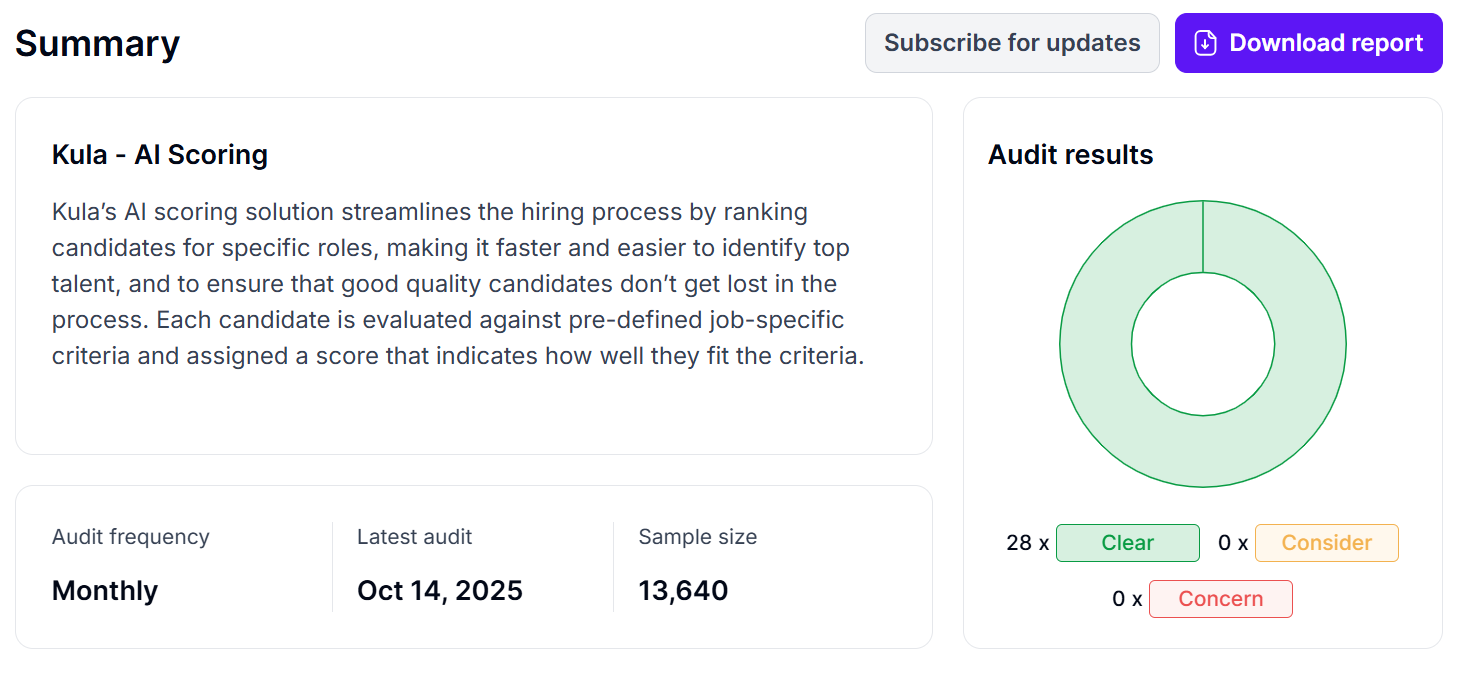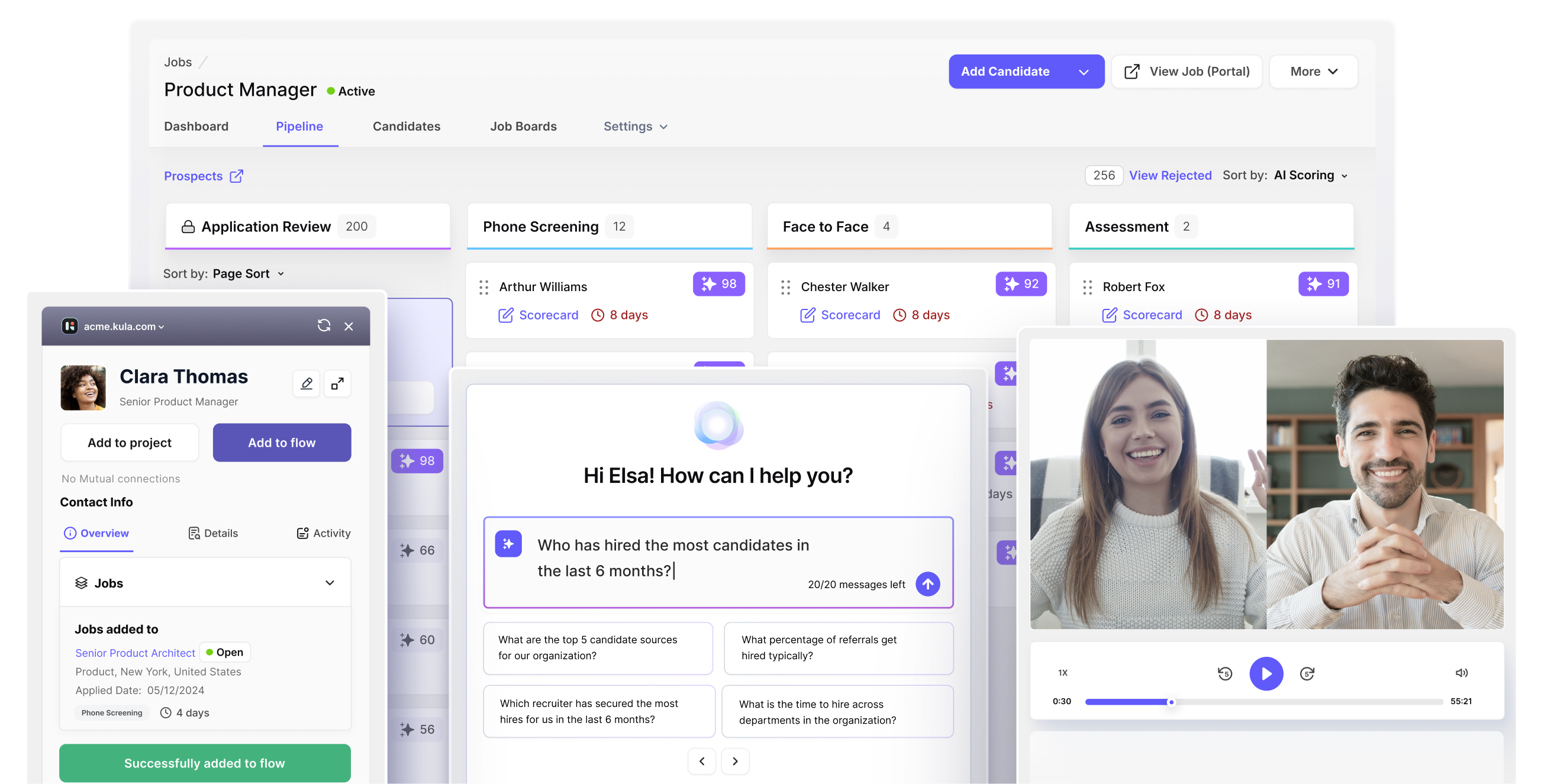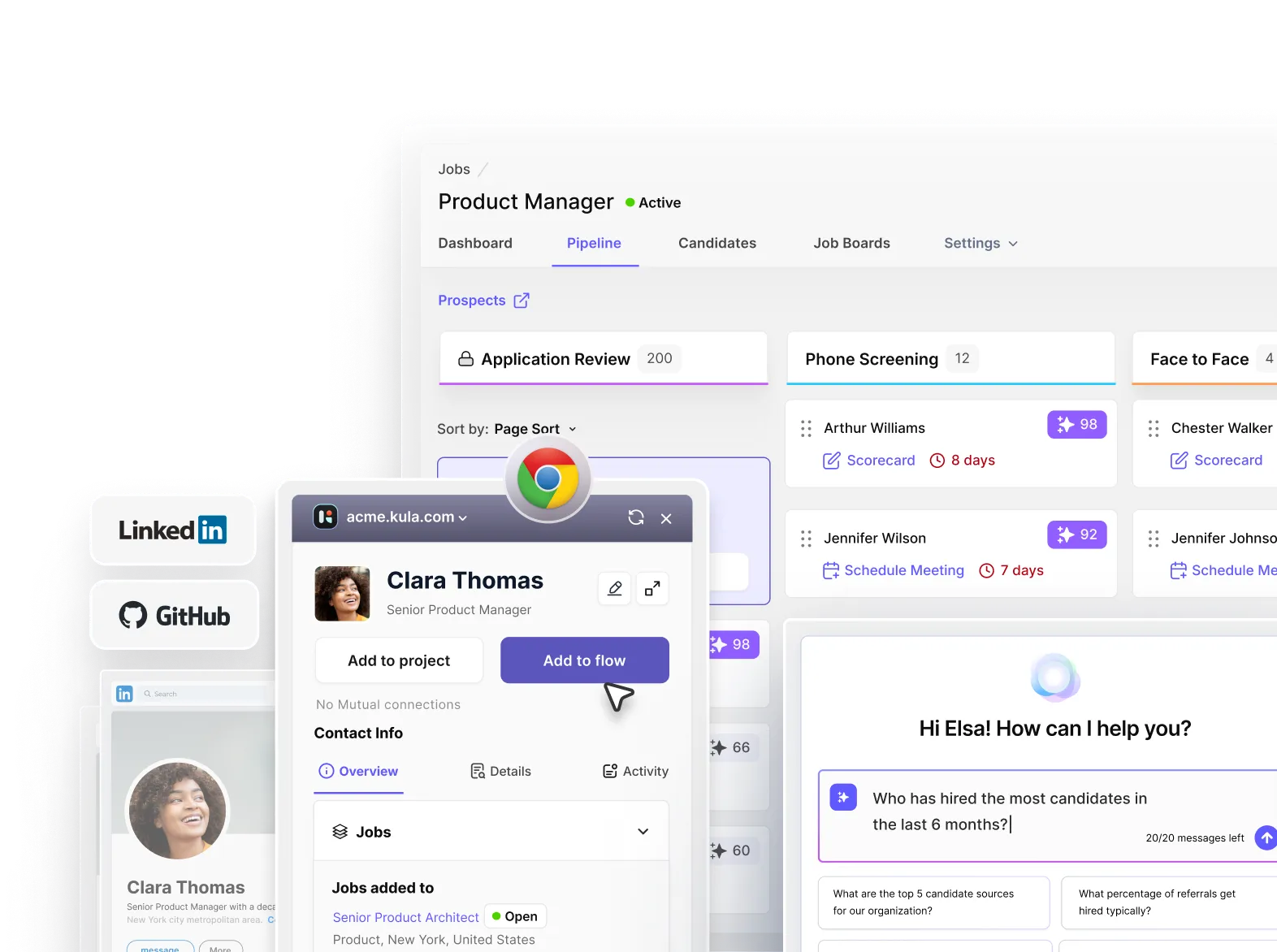Book a 30-minute demo and learn how Kula can help you hire faster and smarter with AI and automation
Nashville turned into the global hub for talent acquisition last week as RecFest USA 2025 brought together thousands of recruiters, HR leaders, and talent tech innovators.
From open-air stages to hands-on demos, the theme was clear — AI isn’t coming for recruiters, it’s coming for their busywork.
This year’s sessions dove deep into how AI can help talent teams source smarter, screen faster, and personalize candidate experiences, all without losing the human touch.
Here are our biggest takeaways from RecFest 2025, and how they align with what we’re building at Kula.
Key themes & learnings from RecFest 2025
1. Recruiters must not fear AI
Many speakers at the RecFest again and again emphasized the active incorporation of AI in recruiting.
Carrie Corbin, co-founder of a recruitment marketing and advertising agency, emphasizes that recruiters shouldn’t fear AI and should experiment with it. Carrie uses AI in recruiting to simplify research, focus groups, and data analysis.
Traditionally, her team would spend hours interviewing people, distilling insights, and identifying key themes for employer branding or recruitment marketing projects. With AI, they could build tools and technology to conduct focus groups and analyze responses at scale, significantly reducing manual effort and cost.
Live from RecFest 2025, Rithwik Hari from the Kula team spoke with Heather following a panel on the future of AI in recruiting. They both discussed how AI is transforming the recruiting process by acting both as an extension of the team and as a tool for efficiency, and believed that AI will take over repetitive, manual tasks and make every stage of hiring more effective.
2. Use AI to access advanced hiring data insights
Caroline Keysler, director of HR at Workware Outfitters, mentioned the importance of hiring data insights, and the best use of AI is to gather and analyse such data and extract information beyond basic KPIs.
She says, “I don't love when one of my recruiters in their performance review or their goals for the year wrote, I want to increase my time to fill by two days, I would immediately send it back. I want to see I want to have better data insights to influence my managers.”
Instead of focusing only on hiring metrics like reducing “time to fill,” use AI to analyze candidate data, candidate interactions, and performance insights to influence hiring strategies more effectively.
It also helps recruiters walk into conversations better prepared with intelligence that builds their credibility and guides managers who may not be interview experts.
3. Use AI screening for ranking candidates in minutes
At RecFest, a lot of companies shared how they’ve been seeing strong results with AI screening.
AI screening no longer works like a black box algorithm, where you train it on limited data and it spits out generic answers. But now, recruiters can actually maintain control over AI, as recruiters can set specific criteria like job descriptions or desired qualifications to rank candidates.
Along with candidate rankings, some AI tools also provide quick summaries on why they scored applicants a certain way. This not only increases trust in AI-driven hiring but also saves recruiters significant time.
4. AI to empower humans, not replace humans.
Tara Turks, while sharing her views on AI, mentions that AI should be used in such a way that is not geared towards reducing your recruiter headcount, but giving time back to your hiring manager to do their actual jobs and make the recruiting community better.
Adding to this, Mark, co-founder and the CEO of Hacker Job, says, “Everyone's talking about AI saving time, but not enough people are talking about how we're going to reallocate that time. If I'm a recruiter, the first thing I'm doing is like what are the things that I'm uniquely good at that AI isn't, and will allocate that saved time to these tasks.”
AI in recruiting goes beyond saving time; it allows recruiters to focus on higher-value tasks that create greater business impact. The key is not just efficiency, but thoughtfully reallocating the time AI frees up, so teams can work on strategic initiatives rather than just processing resumes.
5. Use AI for compliance and reduce bias
Jeffrey Pole, Co-founder & CEO @Warden AI, mentions, “One of the most interesting studies is that we compared AI fairness or AI bias to human recruiter bias and fairness, controversial, and we actually found that AI actually does better than humans on this topic. So, that was an interesting insight in that report.”
AI offers greater consistency and scalability compared to human-driven processes, often outperforming humans when properly designed and deployed. While risks like bias exist, these can be mitigated through mature development, responsible frameworks, and proper guardrails.
Organizations are increasingly exploring governance approaches such as process-based frameworks and external validation to monitor AI behavior, though adoption of such compliance measures remains limited across many vendors and tech firms.
How does this tie into Kula’s mission?
At Kula, we’ve always believed that technology should make recruiting more human, not less.
The insights from RecFest only reinforce our approach: using AI to understand context behind profiles, personalize engagement, and help recruiters make smarter, faster decisions.
Whether it’s our
- Advanced AI Scoring that analyzes resumes contextually against your ICP,
- Interview Intelligence for AI-assisted notetaking, and automated transcripts, or
- Conversational analytics that provides every hiring insight in seconds with natural language prompts
At Kula, we also take our AI’s integrity seriously, and perform independent monthly AI audits with Warden AI, a trusted AI assurance platform.

Final thoughts
RecFest 2025 made it clear, the future of recruiting is hybrid: human empathy powered by AI precision.
For teams looking to stay ahead, the next step isn’t about choosing between people or technology; it’s about combining both.
Kula is already on that path, helping talent teams scale personalization, simplify workflows, and make every hire smarter.






















